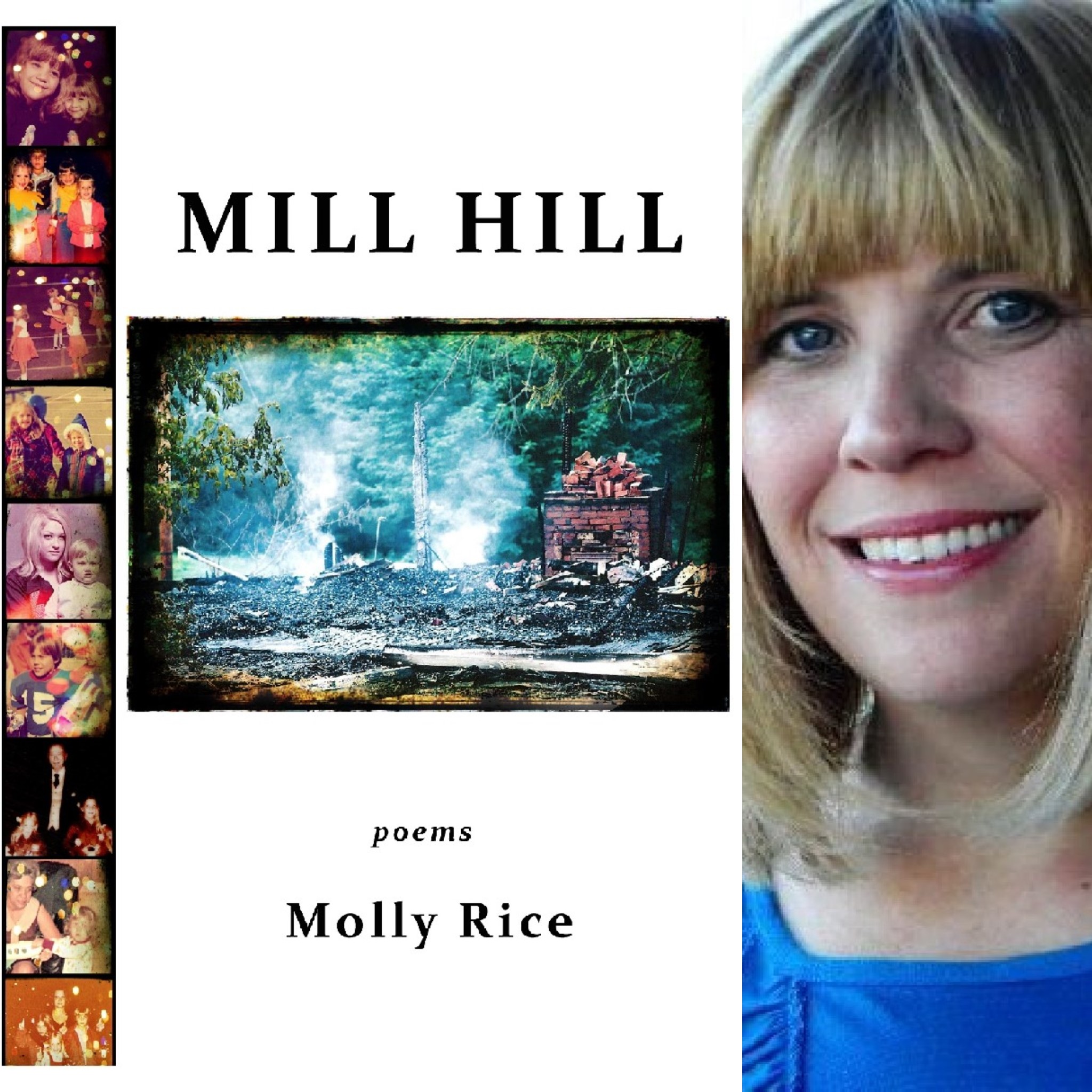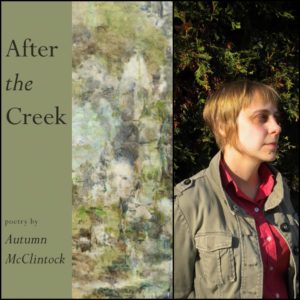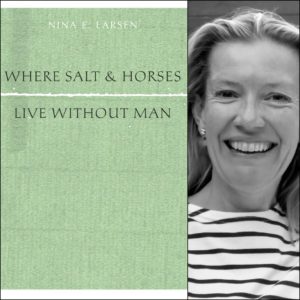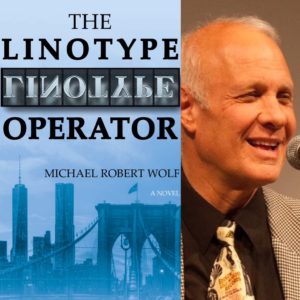Description
Mill Hill
by Molly Rice
$14, paper
Molly Rice has held several residencies teaching poetry, film, storytelling, theatre, and ESL in hundreds of schools, colleges, and organizations in NC, United Kingdom, Ireland, Russia, and Hungary. While living in Ireland, she wrote and directed over thirty original plays and became a Pushkin Trust Artistfor the Duchess of Abercorn. She wrote a teacher’s manual entitled Exploring the Lough – Creative Activities for the Primary School Classroom and was included in round the Lough, Lough Views, Shore Lines, and Sea & Shore children’s books. She has been published in various webzines and magazines including Poetry Super Highway, Fortnight Magazine, The Stinging Fly, The Dead Mule School of Southern Literature, 2012 spring issue of Iodine Poetry Journal and Bloodshot: Journal of Contemporary Culture. She was a contributor to a major anthology of poetry and art entitled, A Conversation Piece edited by Adrian Rice & Angela Reid (Ulster Museum, Northern Ireland). She has been published in several anthologies including Voices and Vision: A Collection of Writings By and About Empowered Women published by the Women’s Resource Center of Hickory, The Best of Poetry Hickory edited by Scott Owens, and The Best of Final Friday Reading Series edited by Scott Douglas. Molly is currently a theatre teacher/director of the Tractor Shed Theatre and editor of the literary magazine “Indian Ink” at St. Stephens High School (SSHS). In her five years at SSHS, she was chosen as SSHS’ Wachovia Teacher of the Year, made a Claes Nobel Educator of Distinction, chosen as “Outstanding Director” North Carolina Theatre Conference 2009 & 2010, Teacher of the Year 2010, won League championship in the online creativity game The Media League, and won $30,000 in technology for her classroom for the winning music video in the eInstruction’s Classroom Makeover contest. She is the district coordinator for the National Poetry Out Loud Recitation Contest. Molly currently resides in Hickory, North Carolina with her husband Irish poet, Adrian Rice and their young son Micah Wayne Freeman Rice.






Scott Owens –
Scott Owens, Review of Molly Rice’s “Mill Hill”
Review
by Scott Owens
MILL HILL
Molly Rice
Finishing Line Press
ISBN: 159924960x
In “Nikki Rosa,” one of her best-known poems, African-American poet Nikki Giovanni writes:
I really hope no white person ever has cause
to write about me
because . . . they’ll
probably talk about my hard childhood
and never understand that
all the while I was quite happy.
One white poet who probably would understand is Molly Rice, whose debut collection, Mill Hill, expresses the same bittersweet perspective on what was indeed a difficult childhood.
The location of Rice’s poems is key and is made clear in the collection’s title. Mill Hill is a colloquial Southern expression for the textile mill villages that seemed ubiquitous in North and South Carolina for the first seventy years of the 20th century. For some, particularly those moving from rural upbringings, for awhile, these villages could seem urbane, almost sophisticated with their paved streets, indoor plumbing, and door-to-door delivery of everything from newspapers to milk and eggs.
Over time, however, most mill village residents came to recognize a new form of poverty inherent in this lifestyle, a poverty created by separation from the natural world and the natural cycles of agrarian life, by the lack of autonomy intrinsic with being “a company man” in “a company town,” by the physically debilitating demands of industrial labor, and by a socio-economic framework of expectations and limited income seemingly designed to deny self-sufficiency and foster co-dependence and self-medication.
In Mill Hill Rice has written poems that beautifully and perfectly capture the experience of growing up amid the poverty, abuse, frustration, and anger of a mid-century Southern textile town. Like Giovanni, however, Rice recalls that while children are capable of comprehending the dangers and frustrations of their lives, their recalcitrant innocence also makes them experts at making the best of such circumstances, resulting in memories of times that while perhaps not “happy” always seem “happy enough.”
The book’s best poem, “Home Front,” expresses this duality most clearly. Telling the charming story of children whose faces are painted with the dust of lightning bugs so as to be fluorescent as they play outside at night, Rice reminds us first of the physical demands placed upon this family through the image of the mother’s “rough, yarn-worn fingers” and then of the psychological challenges they face in the haunting lines,
tonight, with him not home,
we three little Indians
escape a scalping
and dance in the dusk —
glowing.
The contrast of innocence against the crueler realities and intentions of the Mill Hill is repeated in poems like “Tired Child” and “Swing.” Sometimes the possibility of joy seems to have the upper hand or at least remain feasible, as in “Sightings,” where the speaker tells us, “We woke up / covering our eyes / from the brightness/ of a hallelujah sky.” In other poems, however, like “The Other Way,” where the poem’s addressee “took pain pills and never woke up,” the tragic loss of hope prevails.
Sometimes the complicity of other social institutions in this new breed of poverty is made clear. In “Free Will,” for example, the existence of classism and the callousness towards poverty even in a place as supposedly egalitarian as a church is portrayed in the words of a parishioner who declares about the speaker and her sister, “Those girls only come for the food!”
Like all good poems, those in Molly Rice’s Mill Hill are full of sorrow and joy, pain and happiness, as they make clear that Rice does indeed understand the duality Nikki Giovanni recalls from her childhood. What makes these poems unique is that they find these qualities in and express them from a specific time, a specific place. In her closing poem, “Pharr Yarns,” Molly Rice asks “Who is left? / Who will do the millwork?” If millwork can be understood in this case to mean memory, then Mill Hill is Rice’s clear and resounding answer.